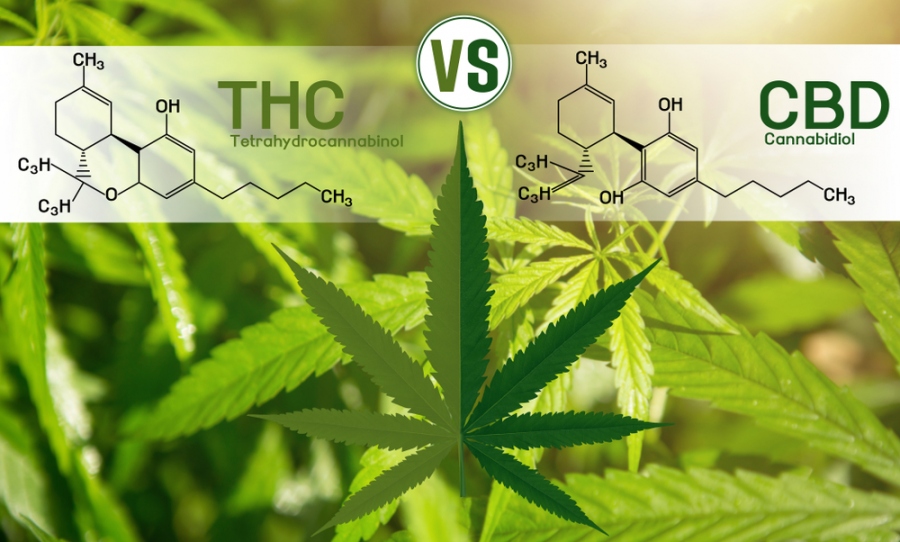As more and more people try out CBD oils and extracts, they’re considering whether or not CBD is a good fit for their own lifestyle. Additionally, the fact that CBD is derived from hemp may have them concerned that it has psychotropic effects, similar to the effects of marijuana. The fact that CBD is sold and marketed in different forms can add to this confusion.
While medical marijuana is also gaining popularity as legalization laws continue to appear, CBD oils offer a completely different experience than marijuana, with a slew of potential health benefits. Here’s what you need to know about CBD isolates and THC.
What is THC?
THC, also known as tetrahydrocannabinol, is one of the main chemicals in marijuana. Research shows that this chemical affects you differently than CBD, and many think of THC as the psychotropic aspect of marijuana that causes what you’d generally consider the “high” from using cannabis. But CBD does not cause a high — the effects of cannabis include more delusional, altered perceptions than the effects of CBD.
If you are seeking the type of pain relief that medical marijuana can provide, but do not want to experience the intoxicating side effects of ingesting marijuana, then opting for substances which contains straight CBD could be a much better choice for your treatment.
What is CBD?
Cannabidiol, or CBD for short, is another major chemical in marijuana, and in some cases, it can actually counteract the effects of THC. It’s for this reason that CBD is actually being studied for its potential to address mental illnesses. Cannabidiol is extracted from the buds of hemp and marijuana plants, and doesn’t intoxicate you when you use it, because it doesn’t include THC.
CBD oils can also be taken in a variety of ways, with oils being the most popular form on the market. But this flexibility is great for users who want to have multiple options for taking CBD oils. One way you can take them is sublingually (underneath your tongue), where the oil is held for about a minute so that it can be fully absorbed.
CBD oils can able be used in cooking, in case you’re interested in masking their flavor. In these instances, opting for CBD isolates is a better option, as they hold up better after cooking. One of the other benefits of CBD oils is how even a small dose can have a big impact. In fact, in a clinical study of CBD oils impact on patients with epilepsy, a smaller dose of 10mg was just as effective as a 20mg dose, and users experienced fewer side effects too.
What’s the difference between CBD isolates or full-spectrum CBD?
Now that you know that CBD oils come in a variety of types, you may be wondering what the difference is between CBD isolates and full-spectrum CBD. First of all, if you’re concerned about either of them containing THC, you needn’t worry much, as neither contains high levels of the intoxicating chemical.
The simplest way to differentiate CBD isolates and full-spectrum CBD is to think about processing. When you consider full-spectrum CBD, you must consider a more organic approach to deriving the oil, which may also contain other organic chemicals. There’s a small chance that full-spectrum CBD may have trace amounts of THC; however, not at levels that would affect you the way THC or marijuana would. CBD isolates, on the other hand, are more processed and isolate just the CBD oil.
As outlined earlier, CBD isolates are also ideal for cooking, partly because (on average) they are a little bit cheaper to buy. Bulk CBD isolate can be researched, purchased, and used if you’re looking for an affordable way to add CBD to a product you hope to sell. Ultimately, how much you choose to use is up to you, but it doesn’t hurt to have more on hand, especially if you are looking to add CBD oils to your restaurant or cafe’s menu.
While CBD isolate doesn’t have THC, it’s important to note that many other benefits of medical marijuana are contained within CBD oil. If you’re looking for a way to manage your pain or anxiety, CBD oils and isolates can be a great choice, particularly for adding to food and drinks.
